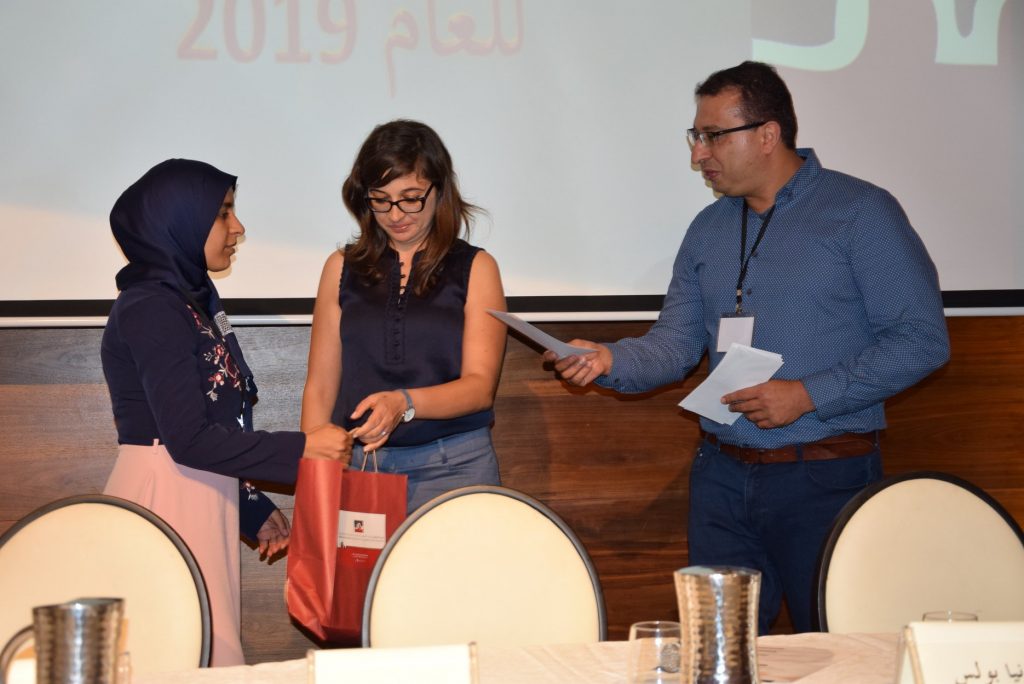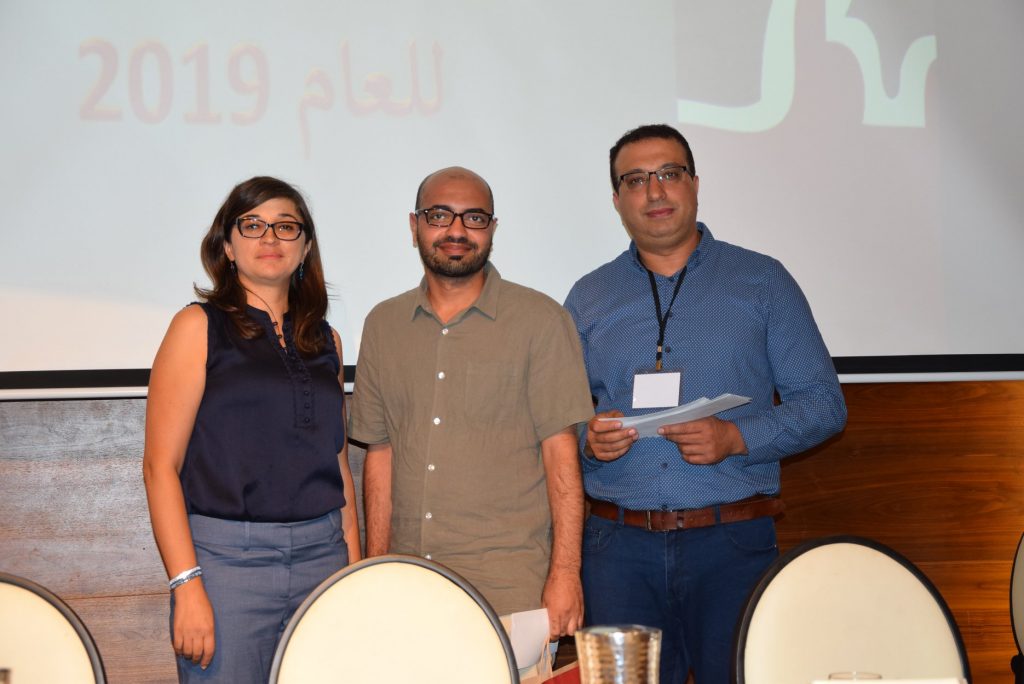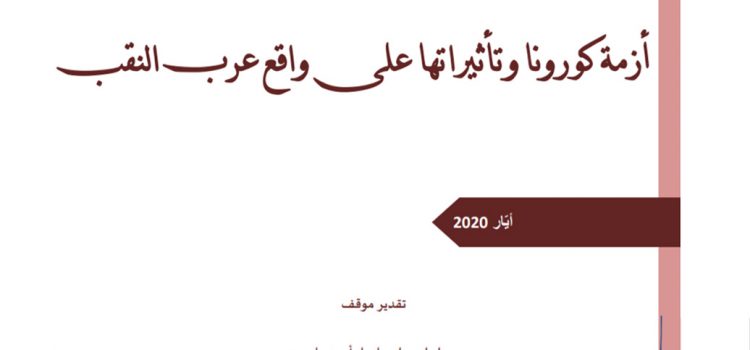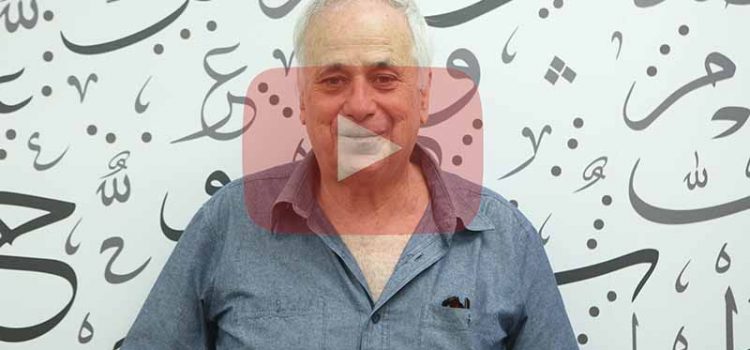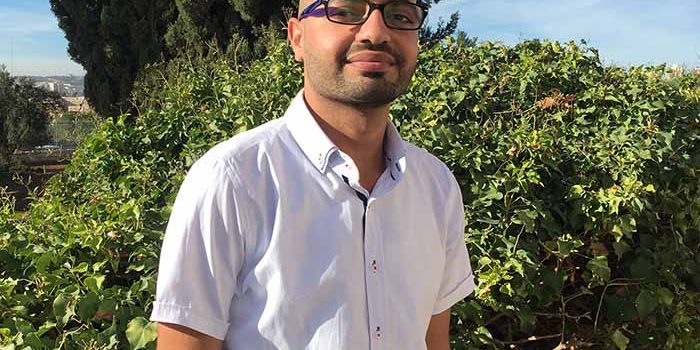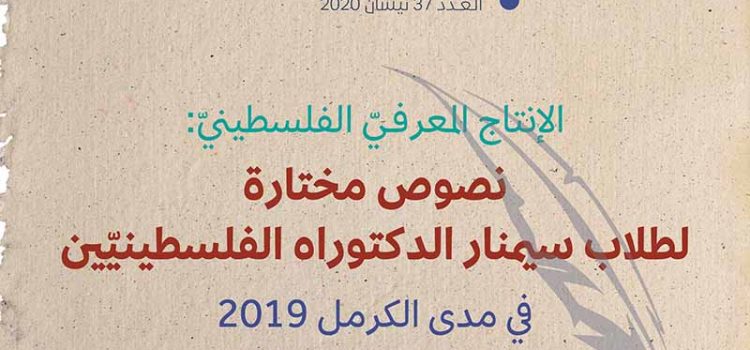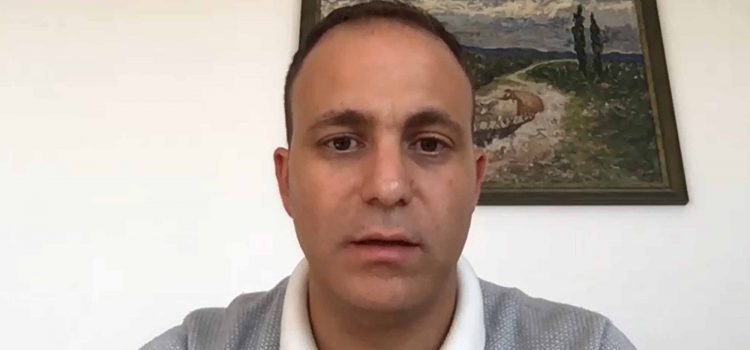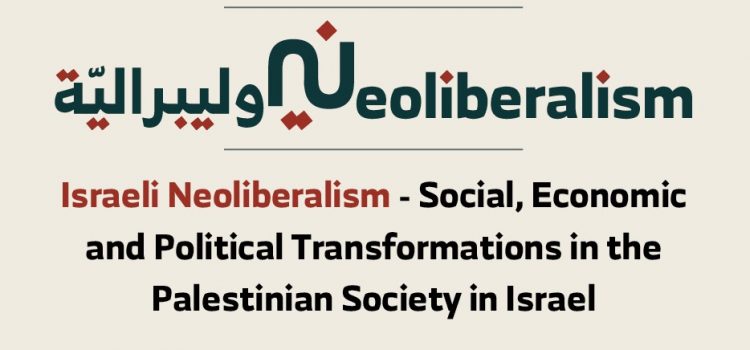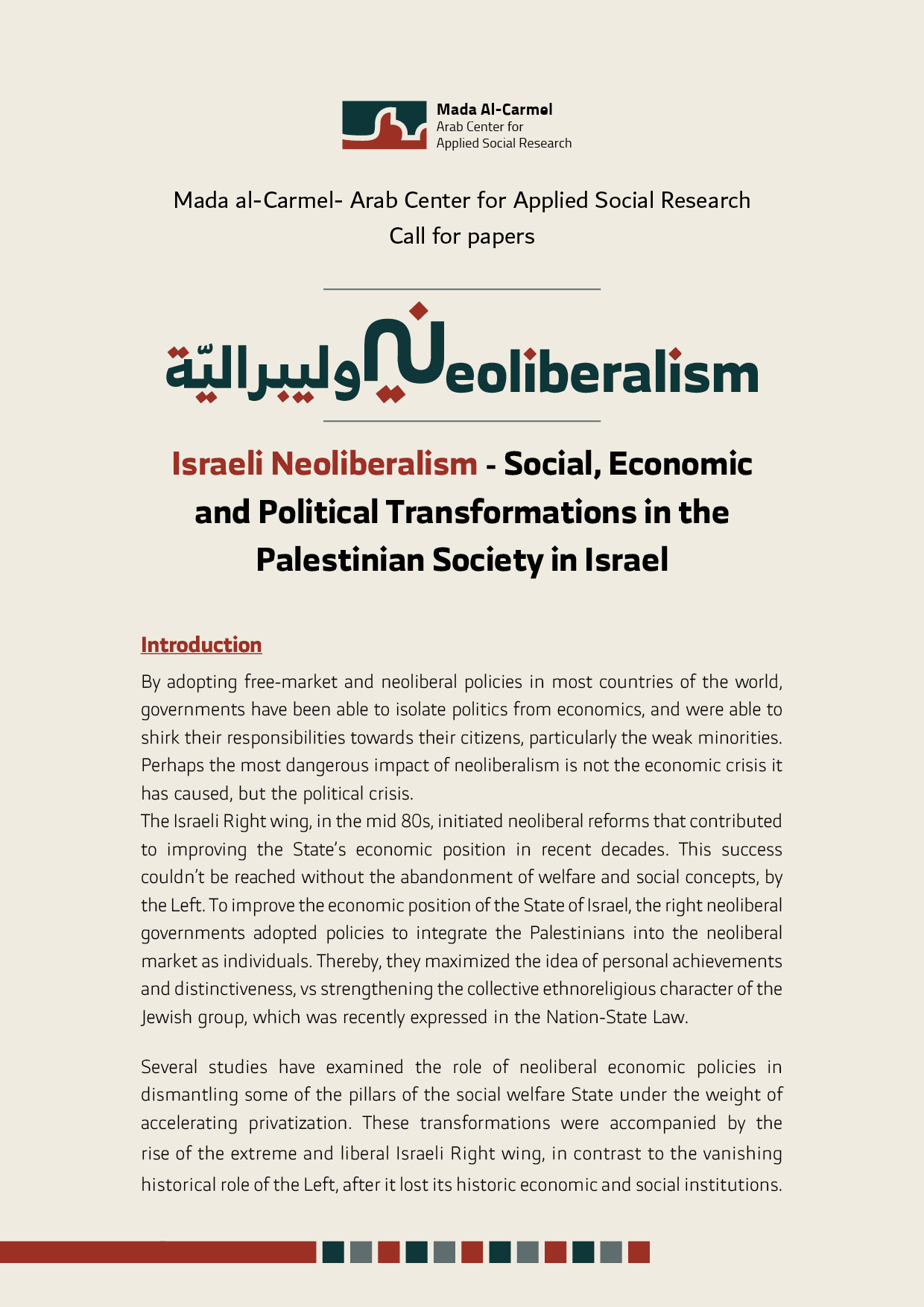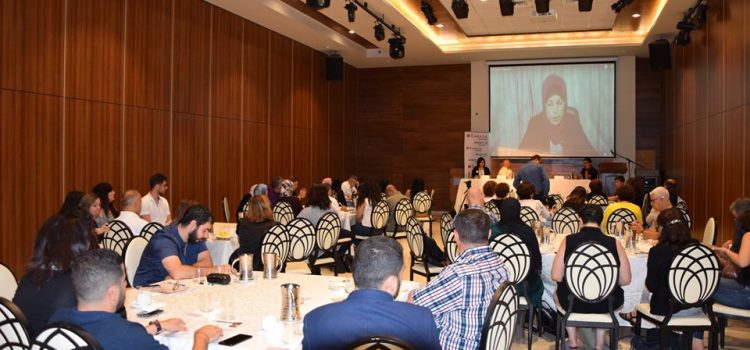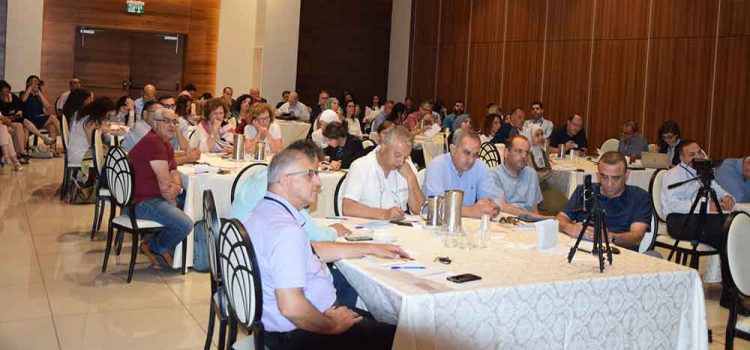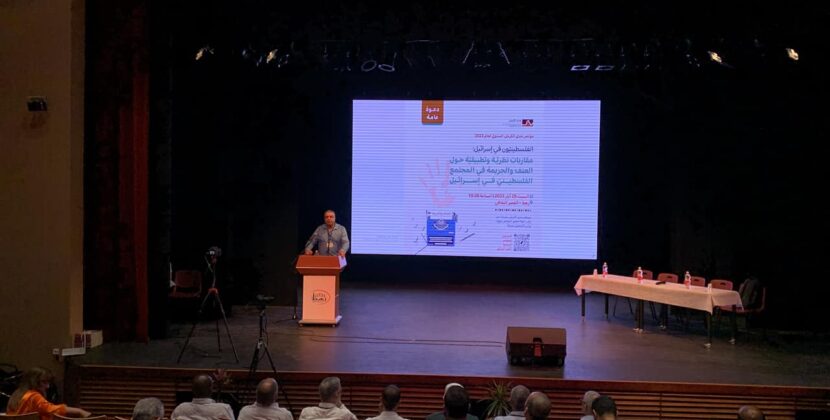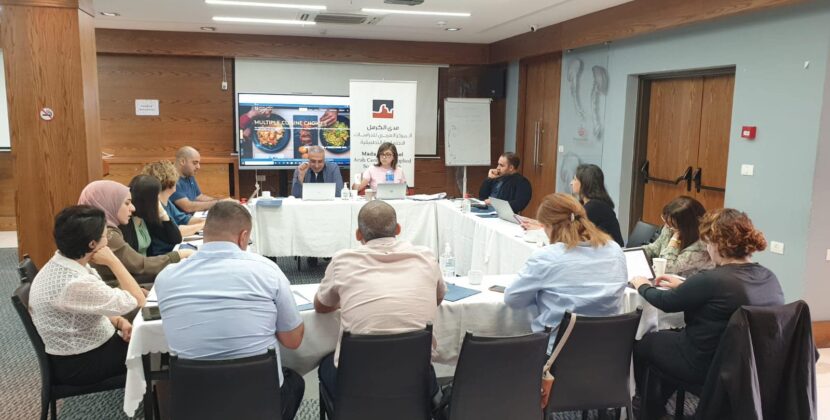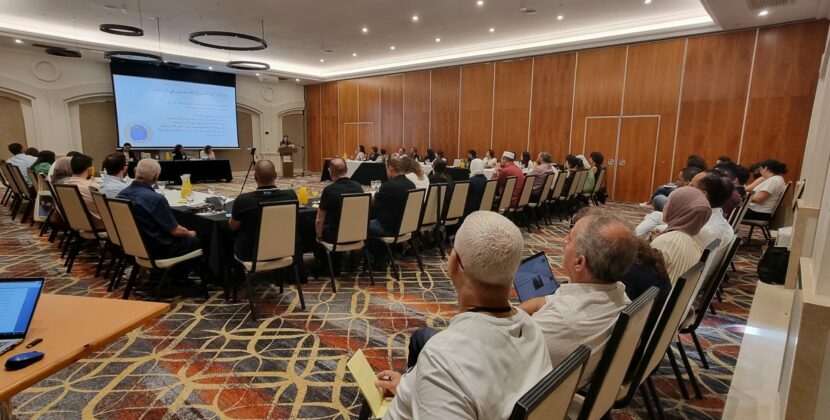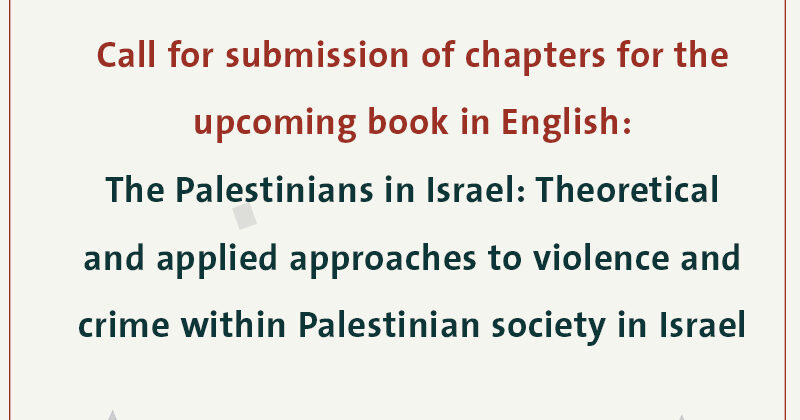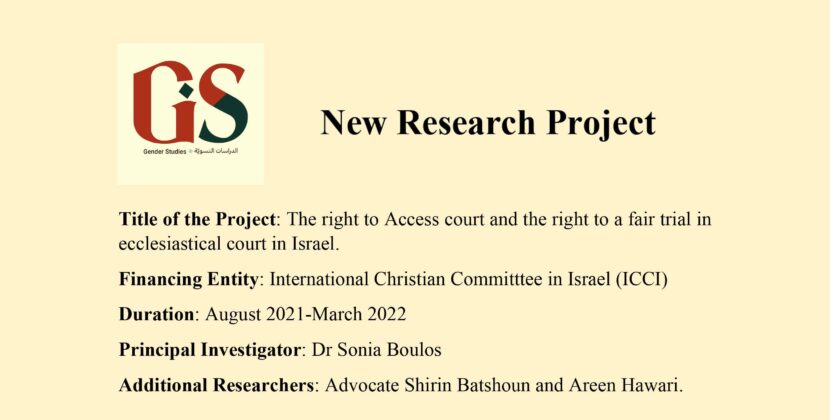Mada al-Carmel, the Arab Center for Applied Social Research, held its fifth annual conference for Palestinian doctoral students last Saturday, 3 August 2019, at the Ramada Oliviee Hotel in Nazareth. Dozens of students, academics, researchers and activists were in attendance to discuss the doctoral research of Palestinian students. This year’s conference was marked by its contribution to the advancement of a new generation of female Palestinian researchers, with the participation of nine females and one male researcher.
The conference was opened with welcoming remarks from the conference’s academic committee members, Dr. Mohanad Mustafa, Mada al-Carmel’s General Director, and Dr. Ayman Aghbaria, Lecturer at Haifa University. Dr. Mustafa stressed the importance of the conference as “an assembly of knowledge where students meet, share knowledge and experience, and connect with researchers from different universities. It is a space to refine the knowledge-producing act of the new generation of researchers, which is a political act of resistance, as it produces knowledge under the colonial power, defying and criticizing it as well as the colonizer himself, the reality under colonialism, and its cognitive tools and research methodology. Dr. Ayman Aghbaria then touched on the importance of the researcher being an educated witness, practicing the act of research, meditation and discernment of the truth. He added that, “What we seek is to move the Palestinian academic from observation and watching to the field of active witness.” He concluded by referring to the shape of the coming Palestinian select, which the PhD student program in Mada al-Carmel seeks to form.
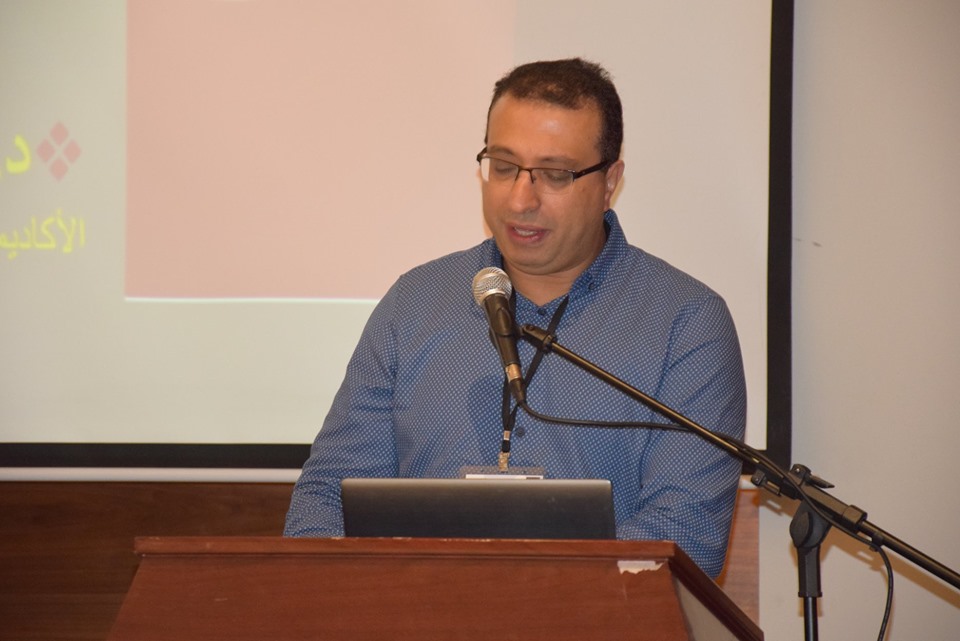
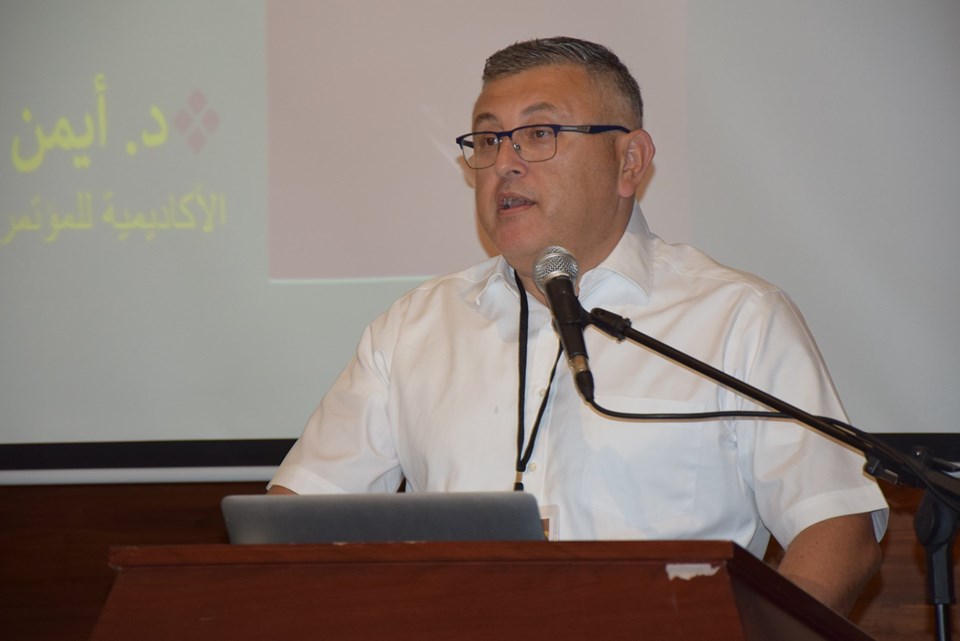
The conference included three sessions. The first session, moderated by Dr. Ayman Aghbaria, was on Women’s Identity: Paths of Formation and Images of Representation. The session included three interventions, the first, “The management during religious identity change among young Muslim women in Israel ,” was presented by researcher Aisha Hajjar Aghbaria, a PhD student in the Communication and Journalism Faculty at the Hebrew University. This research dealt with the possibilities offered by social networking sites to women with a traditional, patriarchal social identity with regard to the elaboration and presentation of their religious identity under the rule of a secular state.
The second intervention, “Transformations in Contemporary Islamic Thought: The Status of Women in the Islamic Fiqh (Law) Academy,” was presented by Nahed Kanaan, a PhD student in the Middle East Department at Ben-Gurion University. This research dealt with the status of Muslim women in the social and historical cultural context (1981-2018) within the walls of the Fiqh Academy, a supreme institution that is considered an umbrella for the Islamic world, by examining how “fatwas” on women’s issues and rights have evolved, and describing the feminist fiqh discourse within the academy.
The third and final intervention in this session, “Feminism by Male Writers: “Yousuf Idris” as an example,” was presented by researcher Amani Hawari, a PhD student in the Arabic Language and Literature Department at Haifa University. In her research, Ms. Hawari tried to find an answer to the question: “Is the male writer feminist in his literature?” This provoked a debate about what makes writing feminist in terms of content, ideas, methods, and gender of the writer. She then presented Youssef Idris as an example of a feminist writer.
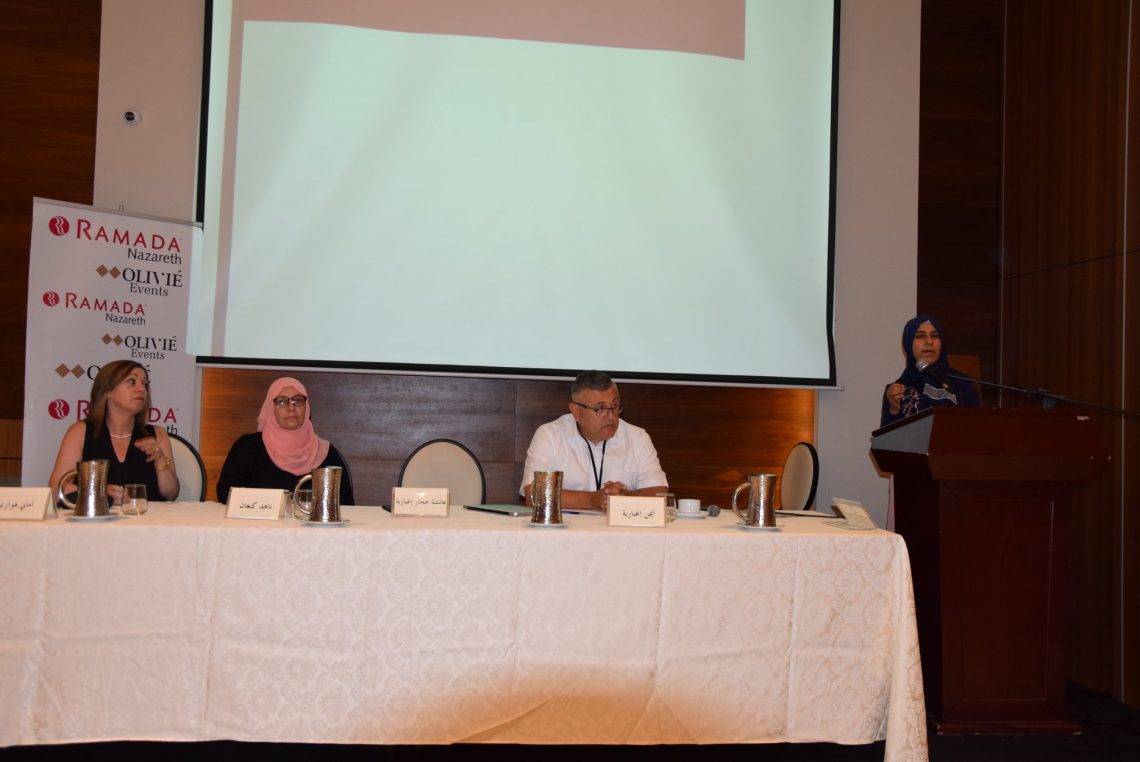
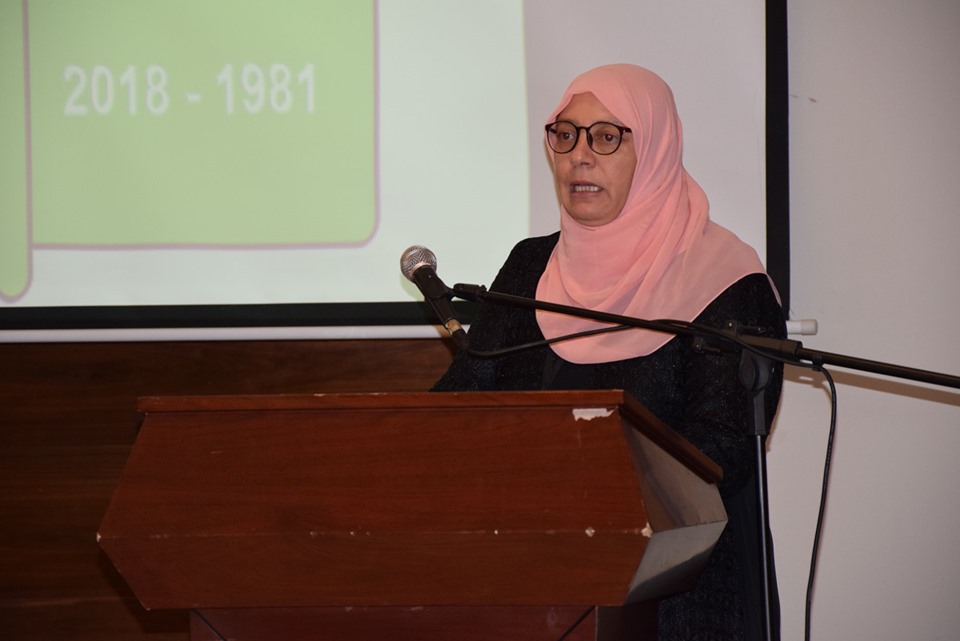
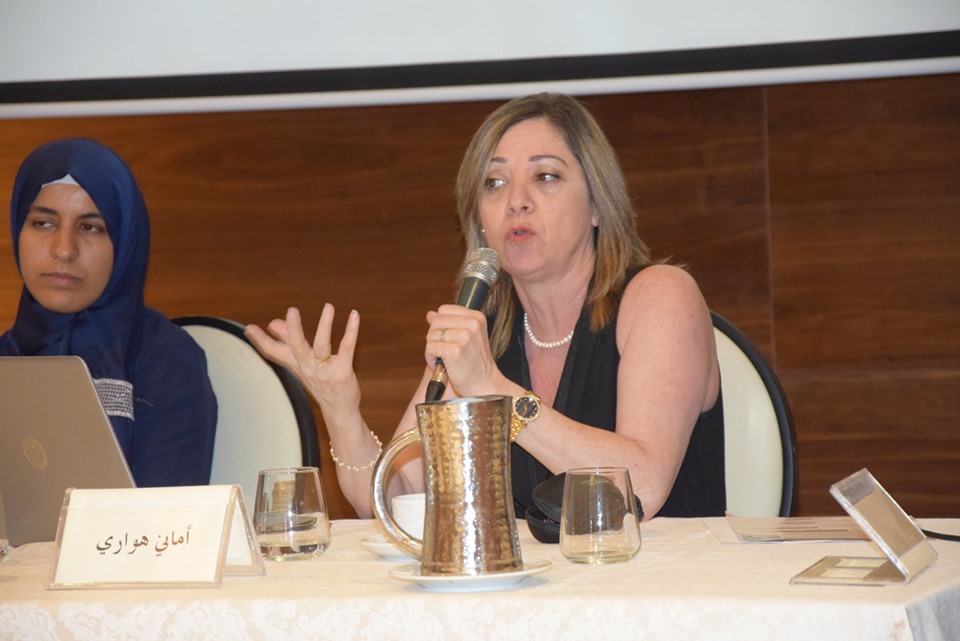
The second session was on “Palestine: Historical, Social and Economic Approaches” and was moderated by Dr. Ameed Saabneh, lecturer in the Sociology Department at Haifa University, and a member of Mada al-Carmel’s Research Committee. The session included three interventions, the first was by Dr. Elham Jaber Shamali from Gaza via Skype, a doctor of history from Ein Shams University. Dr. Shamali presented a paper entitled, “Jewish National fund and its role in Zionist project in Palestine (1901 – 1948) .” In it, she addressed the Jewish National Fund (JNF) noting that it played an important role in the looting of Palestinian lands until 1948. The JNF managed to provide 31 million Palestinian pounds from several sources to take over an area of 936,000 dunums. It also applied transfer policies to displace the villagers and clans of the Bisan area, east of the Jordan River from the 1920s. During the 1948 war, the Fund was a key element in the expulsion of Palestinians from their villages and cities. The second intervention, “The political economy of the West Bank- Israeli economic relationships after 2005: a class and sectoral analysis ,” was presented by researcher Walid Habbas, a PhD student in the Sociology Department at the Hebrew University. Mr. Habbas addressed the phenomenon of increasing economic relations between the inhabitants of the West Bank and Israel, despite the apartheid regime and the intensification of the colonial structure and tools of control imposed by Israel on the inhabitants of the West Bank at the end of the second intifada. He reckons that “economic relations between the West Bank and Israel cannot be explained solely by the colonial structure exercising control and domination of the inhabitants and territories of the West Bank, while disregarding the role of the Palestinian population. He notes that they are not passive players, and not all of them are in the category of being exploited and managed, as some of them also play a significant role in shaping the form, density and quality of economic relations with Israel.”
The third speaker, Researcher Siham Waked, a PhD student at the School of Cultural Studies at Tel Aviv University, presented a paper entitled, “Palestinian Village Women and the Path of Change: Arrabeh as an Example.” In it, she referred to the changes in the historical geographical reality in Arrabeh, and its impact on women, as she examined the strategies used by the women in determining their own identity in a transitional society.
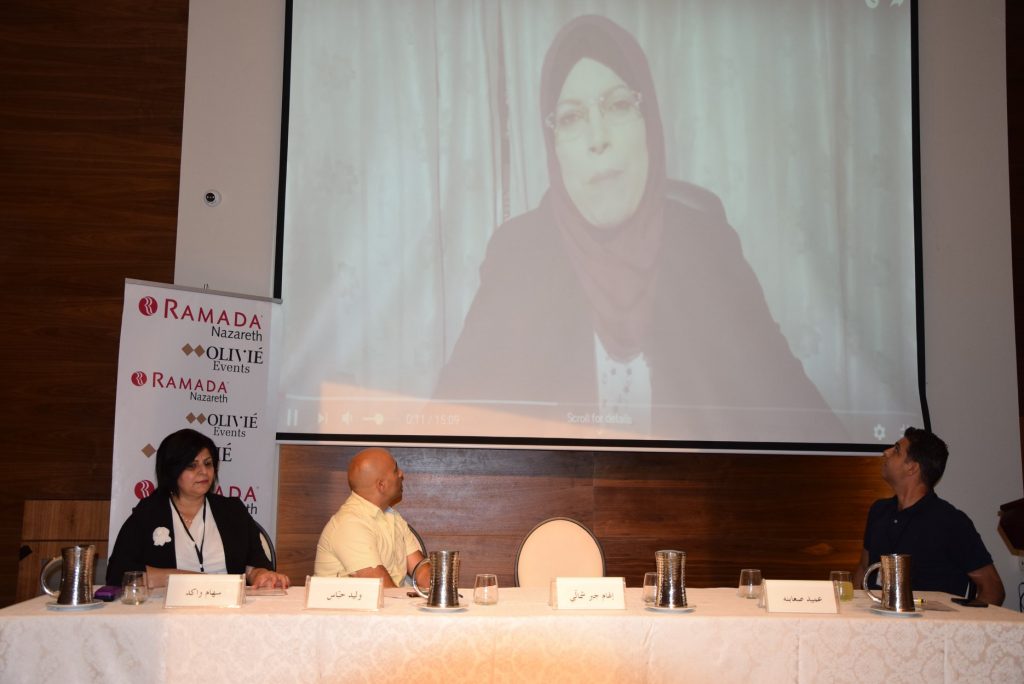
The third and final session was on Palestinian Women: Roles and Societal Challenges. The session was moderated by Dr. Sonia Bolous, a member of the conference’s academic committee, a visiting scholar at Mada al Carmel and a lecturer in the International Relations and Law Department at Antonio de Nebrija University in Madrid. The first speaker was researcher Maysoon Abu Rayya, a PhD student at the Sociology Faculty at Ben-Gurion University. In her intervention, Ms. Abu Rayya presented her research on the Selection Strategies of Divorced Muslim Arab Women Seeking to Re-marry , in which she attempts to understand and analyze the motivations and strategies that drive divorced Palestinian women to remarry under a patriarchal social system, as well as the difficulties they face when declaring their desire to do so.
The second speaker was Camelia Ibrahim, a PhD student in gender studies at Bar Ilan University, who spoke about Palestinian single women in Israel: Stress sources, support resources, coping strategies and adjustment. , addressing the need to treat celibacy as a natural condition and not a transition to marriage. She argued that there are four types of confrontation among single women: one aimed at reaching marriage, another aimed at addressing negative emotions, the third aimed at self-realization, and finally, the fourth heading towards negotiating the family and society and reconciling with the cultural heritage.
In the final intervention at the conference, researcher Huzam Hardal Zureik, a PhD student at the Social Work Faculty at the Hebrew University, addressed The Social Work Profession and Female Social Workers in Arab Palestinian Society: Public Perception and Media Representations. She noted that several stereotypes and negative prejudices have been formed about the social work profession, while attempting to highlight the position of the social work profession in society in general and the media in particular. Ms. Hardal Zureik also tried to shed light on the experience of Palestinian social workers in the social services departments in Arab towns and cities and the violence they face in their work.
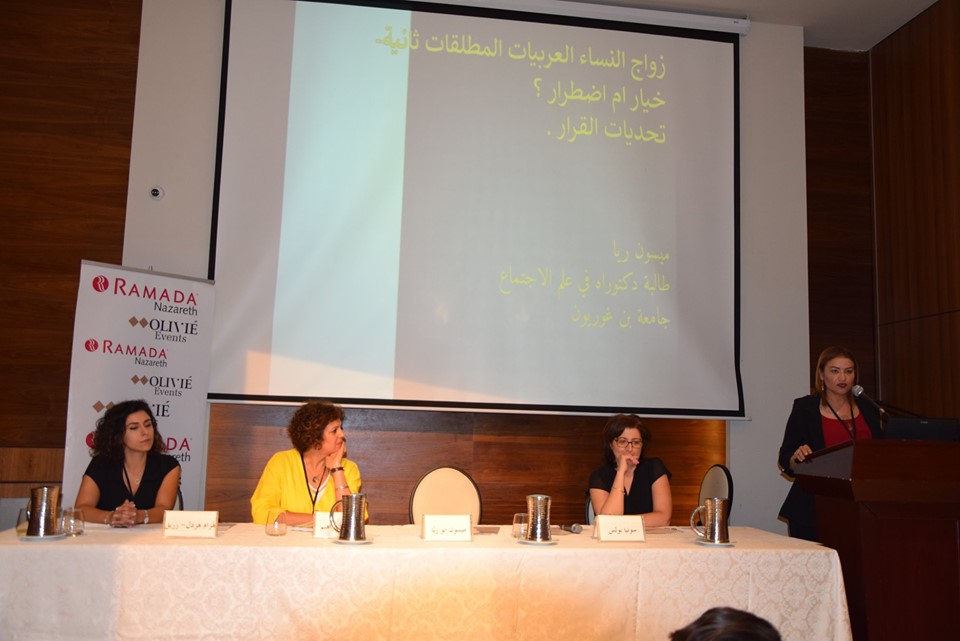
The conference also included the annual awarding of grants by Mada al-Carmel to 10 graduate students participating in the seminar.
At the end of the conference, Dr. Areej Sabbagh Khoury, a member of Mada-al-Carmel’s executive committee, summarized the conference and thanked the participants. She spoke about the importance of self-criticism in Palestinian studies, and not only criticism of the colonial situation. She noted that Mada seeks to provide an academic hub that provides students with tools of criticism and knowledge in their studies through critical approaches to oneself and to the colonial context.
